5. Anti-Reality
Video
Understanding Your Pet Earthling
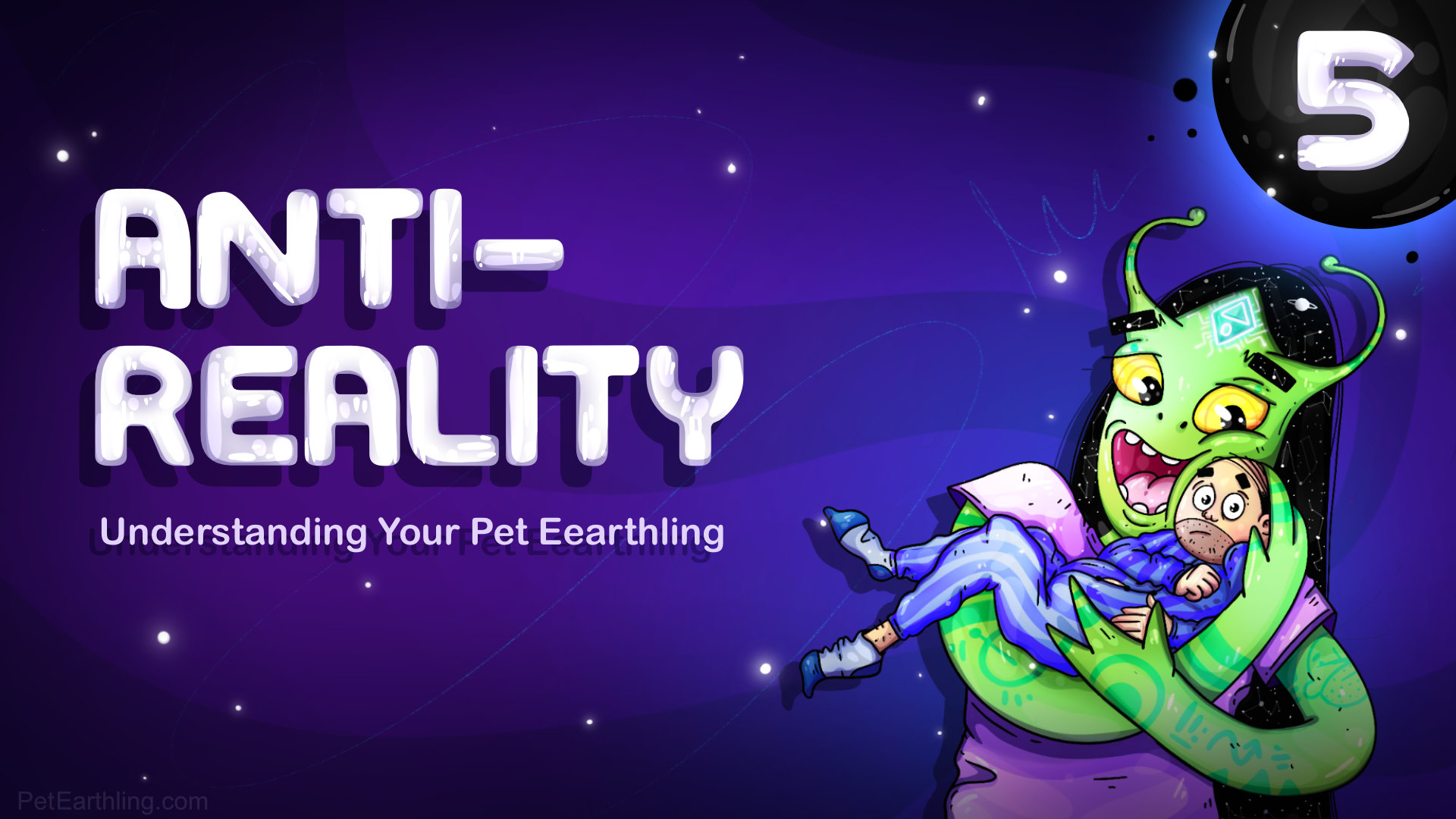
While antimatter is an important part of our
blorxian diet, do not feed it to your pet
earthling. Instead, earthlings have a
special need for anti-reality.
blorxian diet, do not feed it to your pet
earthling. Instead, earthlings have a
special need for anti-reality.
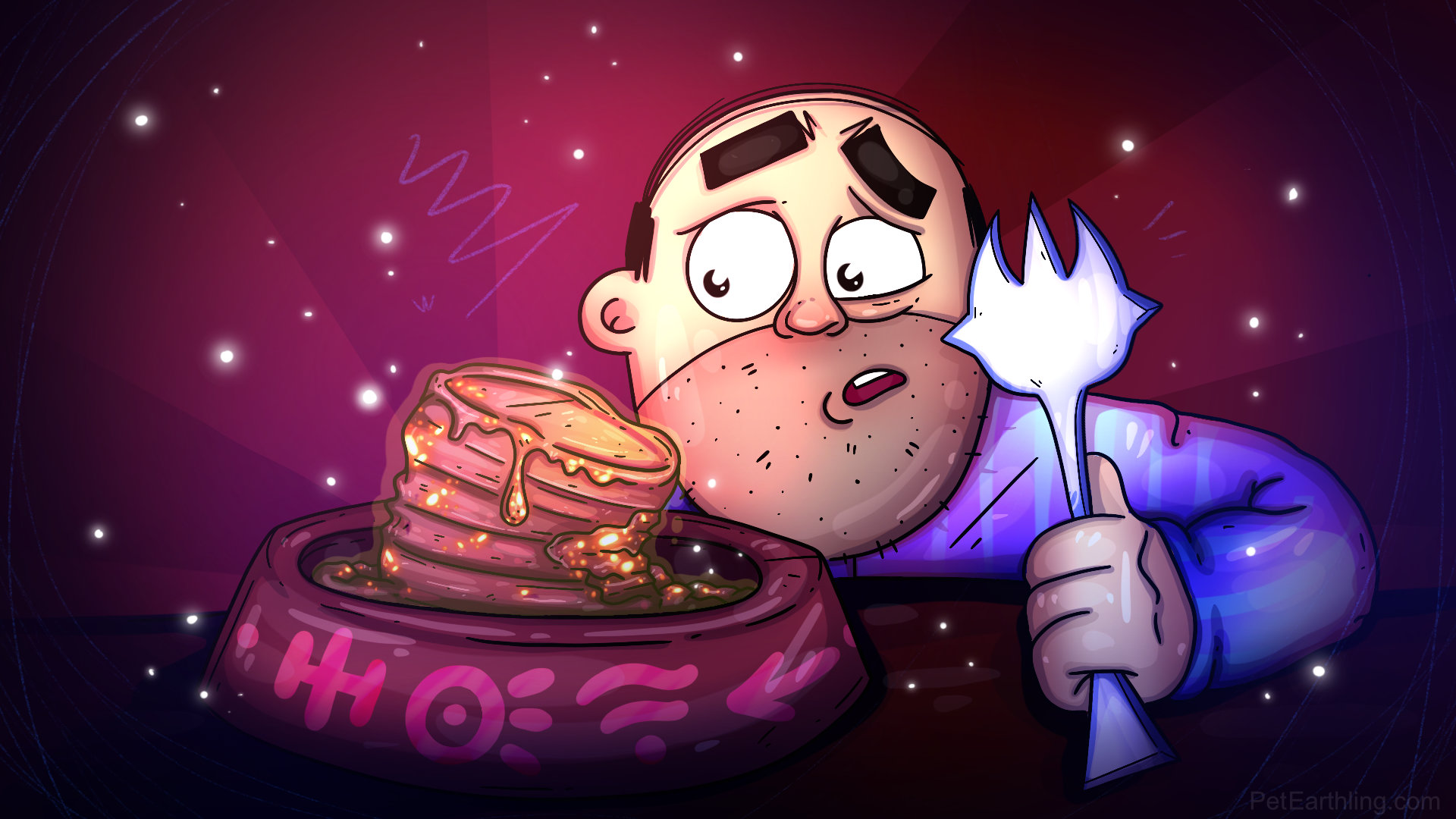
Earthlings are such imaginative creatures, that a build up
of reality causes dangerous levels of boredom.
of reality causes dangerous levels of boredom.

So to counter-act this, your pet
earthling needs daily supplements
of anti-reality in forms they call movies,
TV, books, video games, videopods, and tiktubes.
earthling needs daily supplements
of anti-reality in forms they call movies,
TV, books, video games, videopods, and tiktubes.

Earthlings get bored even with the
physical world: the laws
of physics make
them feel caged.
physical world: the laws
of physics make
them feel caged.
Given a reality explained
by probability and coincidence,
by probability and coincidence,

many earthlings instead
choose to believe their world
is magic, controlled by
superstition, horoscopes,
premonitions, luck, fate,
energy flow, psychics, spirits,
demons, gods, and aliens.
choose to believe their world
is magic, controlled by
superstition, horoscopes,
premonitions, luck, fate,
energy flow, psychics, spirits,
demons, gods, and aliens.
(Well, that last one
is partially true.)
is partially true.)
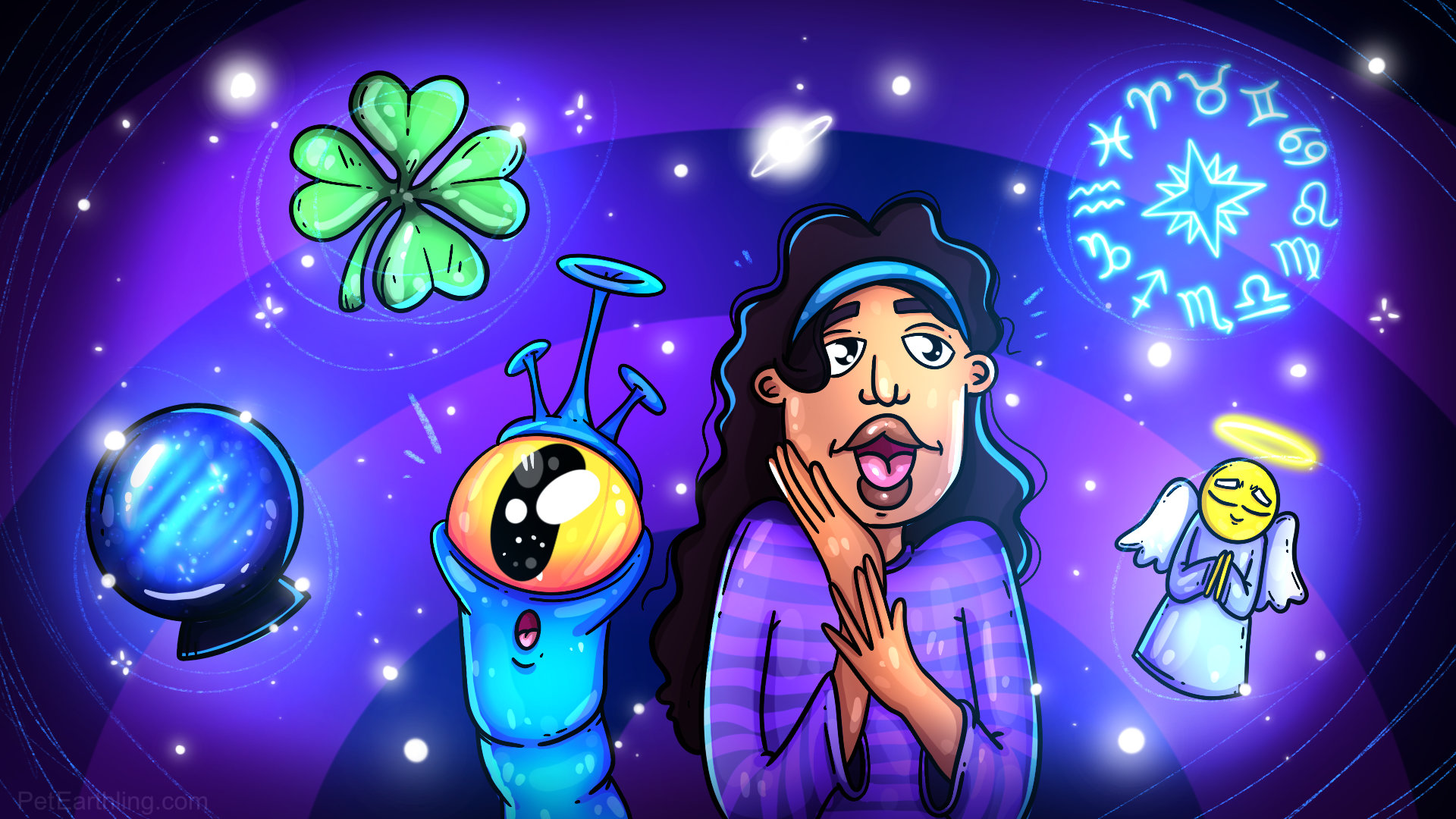
Interestingly, earthlings
even get bored with the
reality of themselves.
They have created
inter-social-webs to post
photos and messages
that portray a fictional
version of themselves,
even get bored with the
reality of themselves.
They have created
inter-social-webs to post
photos and messages
that portray a fictional
version of themselves,
someone who has
more social interactions,
a happier pair bond,
more trendy activities,
and a more attractive
face and body.
more social interactions,
a happier pair bond,
more trendy activities,
and a more attractive
face and body.
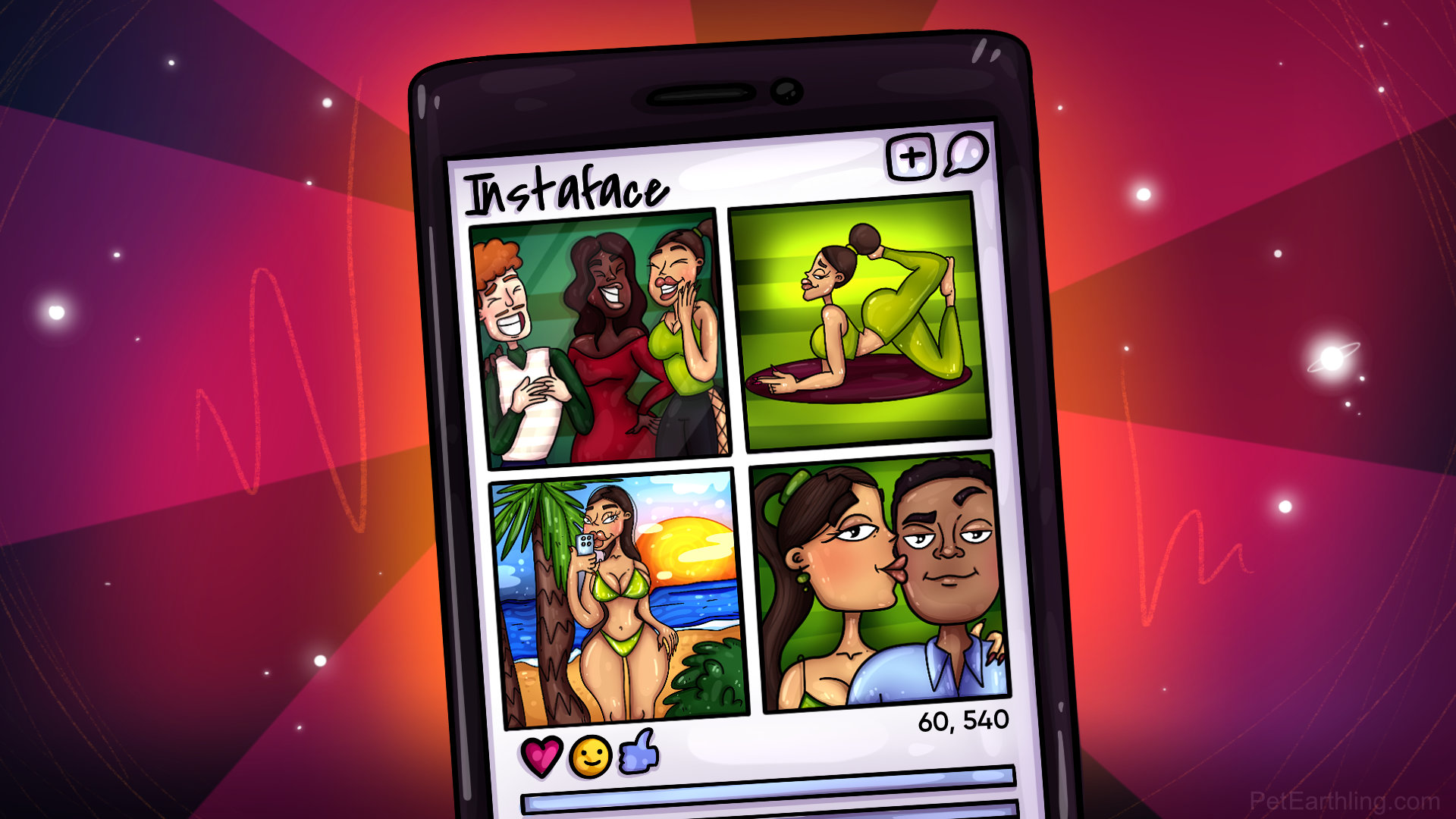
And they use a scoring system called “Likes” to
beat their friends in a contest of happiness and success.
beat their friends in a contest of happiness and success.

The power of
imagination is so strong
in some earthlings, that
they wish to be warriors,
spies, and superheroes.
imagination is so strong
in some earthlings, that
they wish to be warriors,
spies, and superheroes.
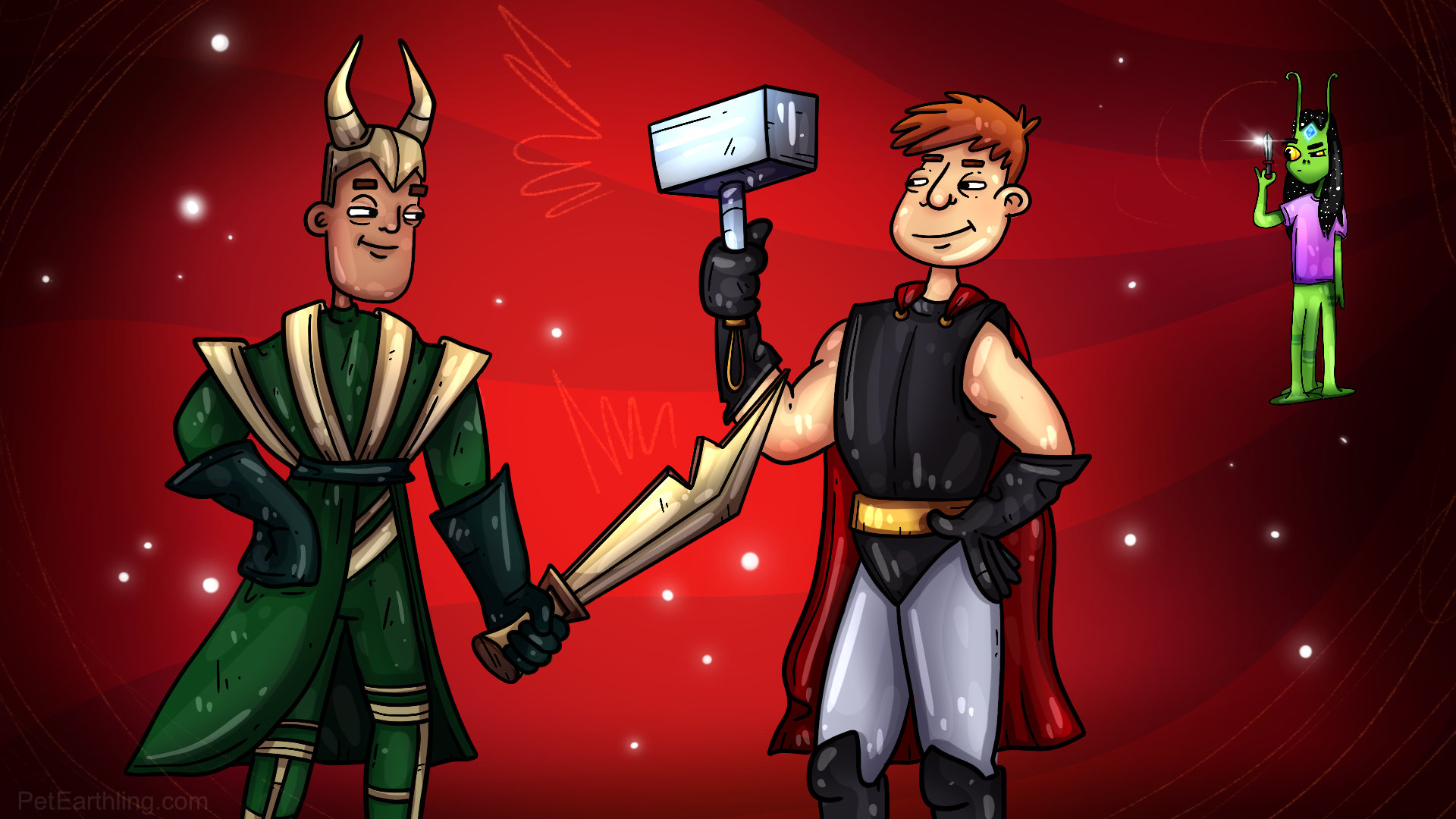
But do not indulge your pet earthling!
It turns out they do not actually
like getting punched,
stabbed, shot, or
the psychological
trauma of such
dangerous
occupations.
It turns out they do not actually
like getting punched,
stabbed, shot, or
the psychological
trauma of such
dangerous
occupations.
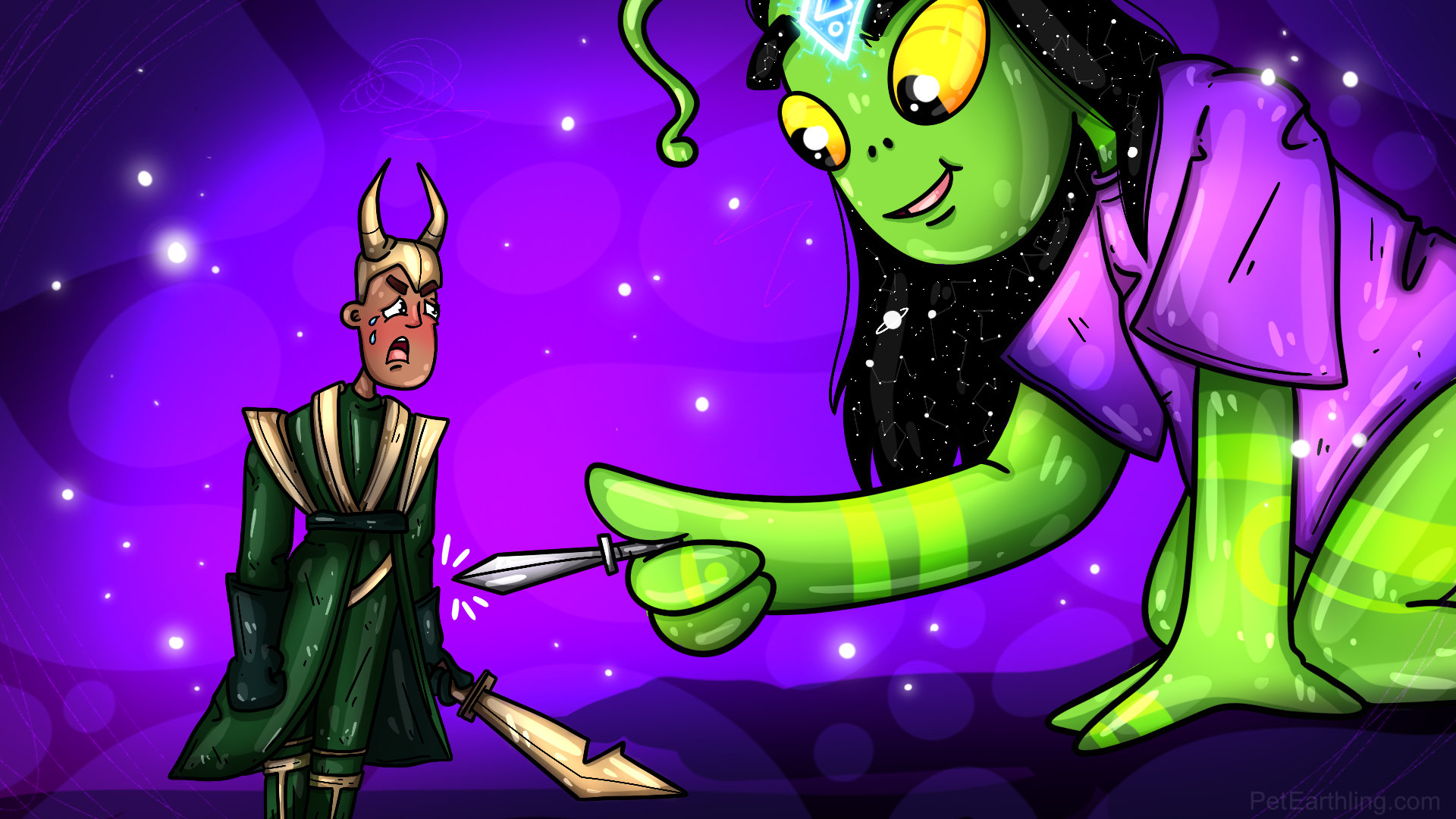
Next Chapter
Comment
Next Chapter
Comment
© 2021 Hans Ness
“Earthlings are such imaginative creatures, that a build up of reality causes dangerous levels of boredom.”
What do we humans do when we’re not busy with all that survival stuff — during any extra time after eating, sleeping, tending our health, and working to afford all that? Let’s draw some dotted lines around five (often overlapping) categories for our leisure allocation:
Creating — doodling, baking, woodworking, sewing, writing, decorating, home-brewing, hairstyling, singing, dancing, etc. (Even recreating someone else’s creation still counts as an act of creation.)
Challenges — puzzles, card games, board games, video games, sport games, money games (gambling), mind games, collecting, pulling fish out of water with little hooks, and learning knowledge and skills.
Socializing — talking, texting, social media, writing letters (eloquently on parchment with folksy background music as the camera slowly pans across grainy black and white photos), etc.
Sensual Pleasure — eating, drinking, listening to music, looking at art, hot tubs, massages, sex, drugs, etc.
Imagining — stories in all its forms (books, plays, movies, TV, oral storytelling), role-playing games, immersive video games
For fun, let’s compare my cat: She creates nothing but hairballs, and she abstains from any challenges. She sort of socializes with other cats (if you call hissing and growling “socializing”). She basks in the sun and forces anyone with a lap to pet her, so that’s a yes for sensual pleasure. And she imagines my hand is a mouse, or a ball is a mouse, or a string is a mouse. (Not the most imaginative, I know, but she knows very well it’s just a toy or my flesh . . . not that she cares.) And she play-fights with the dog as an imaginary rival, like a bratty little sister.
“The power of imagination is so strong in some earthlings, that they even wish to be warriors, spies, and superheroes. But do not indulge your pet earthling! It turns out they do not actually like getting punched, stabbed, shot, or the psychological trauma of such dangerous occupations.”
Many animals have a natural imagination to practice real-life skills: fighting and hunting. So it’s not surprising that as human animals so much of our imagination is about fighting (physical or otherwise) and pursuing prizes (which is sort of like hunting). To varying degrees we like violent action films and combat video games, and it makes sense that we like to imagine ourselves as the hero who conquers the enemies and saves the day . . . as long as it’s in a risk-free world of imagination.
Magic
“Given a reality explained by probability and coincidence, many earthlings instead choose to believe their world is magic, controlled by superstition, horoscopes, premonitions, luck, fate, energy flow, psychics, spirits, demons, gods, and aliens.”
“What happens when we die?”
“Wish me luck!”
“You’re my soulmate!”
but we happened to meet by chance.”
“Let’s pray she recovers.”
Did any of these answers sound disappointing, or even offensive? Such a party-pooper, right? The world feels more exciting when there is mystery, more than just what we can detect with our five senses. Since believing in any form of wondrous magic has fairly little negative consequence, it’s a popular choice (Rational Irrationality).
Part of the reason is also power, a desire to control our future: If you believe in superstition, you can do rituals or carry charms to increase your luck. If you know your horoscope, you know what to seek and what to avoid. If you believe in God, you can pray. These beliefs give you a comforting feeling that you have at least a little extra control and influence over the outcomes in life.
This Wishful Thinking has a developmental root. As babies when we feel hungry, someone eventually feeds us, and when we want to be held, someone eventually picks us up. We do not realize that the grownups are responding to our cries; all we understand is that when we really want something, it usually happens. Even after we learn to talk and ask for what we want, our parents train us to make birthday wishes, and they read us stories that say if we believe in fairies or Santa Clause or whatever, then they’re real. But no matter how much we grow up and educate ourselves, that wishful thinking is still wired into our brains.
Discussion Question: Should parents stop teaching their children to make wishes?
Larger Than Life
“Earthlings have created inter social webs to post photos and messages that portray a fictional version of themselves, someone who has more social interactions, a happier pair bond, more trendy activities, and a more attractive face and body.”
Bragging existed long before social media. We all like to be liked, and people like people who are interesting, successful, and beautiful. So we are rewarded for lying or imp-lying that we are more than we are. Social media is just the latest tool to selectively brag about our successes and strengths. We know our own failures and weaknesses, but we don’t post those as much, and neither do others, so we get a false sense that most people are better off than we are. And thus begins the “Likes Race”.
In a broader sense, everyone wants to be special, more special than others. This is such an innate fantasy, there is a whole branch of literature about children who discover they were born with special abilities, aptitudes, or heritage — such as:
Star Wars: boy learns he has the force
Harry Potter: boy learns he’s a wizard
Princess Diaries: girl learns she’s a princess
Artemis Fowl: boy is naturally a criminal mastermind
Hunger Games: girl learns she’s an inspirational leader
Divergent: girl learns she’s uniquely gifted
Miss Peregrine’s Home for Peculiar Children: boy learns he has supernatural ability
Kingsman: boy learns he has a unique aptitude as a spy
Alita: cyborg girl discovers she's the most powerful fighter
Please comment to help me refine/expand this draft.